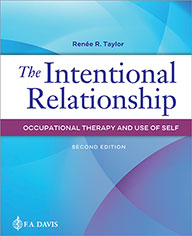Description
PART I Theoretical Foundations and Guidelines for Practice
1 Therapeutic Use of Self in Occupational Therapy: The Importance of Empathy and Intentionality
2 What Defines a Good Therapist?
3 A Model of the Intentional Relationship
4 Knowing Ourselves as Therapists: Introducing the Therapeutic Modes
5 Being Client-Centered: Understanding Interpersonal Characteristics and Mode Preferences
6 Complexities within Client-Therapist Relationships: Inevitable Interpersonal Events of Therapy
7 Uncomplicating the Complicated: The Interpersonal Reasoning Process
PART II Building an Interpersonal Skill Base
8 Therapeutic Communication
9 Establishing Intentional Relationships
10 The Intentional Interview and Strategic Questioning
11 Understanding Families, Social Systems, and Group Dynamics in Occupational Therapy
12 Understanding and Managing Difficult Behavior
13 Resolving Empathic Breaks and Conflicts
14 Professional Behavior, Values, and Ethics
15 On Being Intentional on Fieldwork and in Interprofessional Practice Settings
16 On Becoming a Better Therapist: Self-Care and Developing your Therapeutic Use of Self
Glossary
Credits
Index






